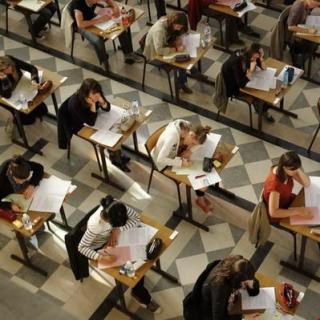
介绍:
1)Make a Schedule(时间表)
This is perhaps one of the most important study tips for high school final exams. Make a schedule that is feasible(可行的), and stick to it. To do this, figure out how many days you have available to study for your final exams (and make sure that you start as far in advance as possible). Mark down when each of your exams will be, and then estimate how much time you will need to study for each one. For example, if your final history exam will be on ten chapters(章节) in your textbook, you might decide that it will take you about an hour to study a chapter until you know it perfectly. That would mean that you’ll need eleven hours to study for your history final exam – ten plus one to review all that you’ve studied.
2)Leave the Best for Last
On any one night, you may want to leave the best for last – or at least the easiest. For example, if you enjoy English class but can’t stand math, try scheduling in your hour of math studying at the beginning of the night, and your English review at the end of the night. That way you’ll be focusing on the hardest subjects while your mind is still fresh and you have plenty of energy.
3)The Best Study Method
What is the best study method you can use for most subjects? The 3R (or Read-Recite-Review) Method has been proven to be exceptionally effective(有效的). Whether you’re studying from a textbook or from your notes, just reading through a section passively won’t necessarily help you remember it. Instead, you should read through the section once, then look away from it and summarize the section in your own words (either orally or in writing), and then read through the section again to see if you left anything out. This ensures that you’re actually understanding and working with the information that you’re studying, and it will help you remember the information for the test.
4)Make a Sample(样品的) Final (考试样卷)
If you have extra time after you’ve gone through all of the information and reviewed it, consider making up your own sample final. This will force you to think about the types of questions that your teacher might ask, as well as which topics your teacher will think are most important.
大家还在听

